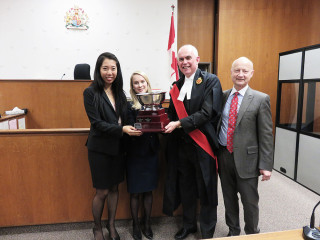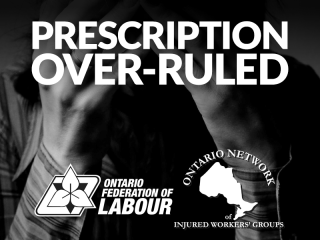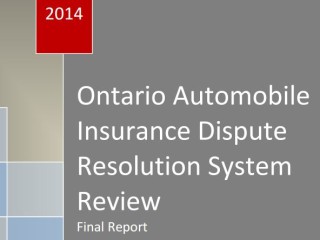Consent to operate a vehicle will not be found absent an actual understanding between owner and driver.
Date Heard: July 12, 2018 | Full Decision [PDF]
In this summary judgment motion, the OPCF-44R insurer sought a declaration that the defendant driver was operating a motor vehicle with the defendant owner’s implied consent. The motion was dismissed. The motion judge held that there must be an understanding between both the owner and the driver (either express or implied) that the driver is authorized by the owner to use the vehicle.
The defendant Justin Gough (“Justin”) was operating a vehicle owned by his mother, the defendant Nancy Gough (“Nancy”). His license was suspended at all material times. Compagnie d’Assurance Traders Generale (“Traders”) was added as a defendant to the action, pursuant to uninsured automobile coverage.
Traders brought the within motion for summary judgment seeking a declaration that Justin was operating the defendant pickup truck with Nancy’s implied consent. Traders took the position that Nancy should be held vicariously liable for Justin’s negligence, pursuant to s. 192 of the Highway Traffic Act.
Justin had owned the subject motor vehicle (a Ford F150 pickup truck) from 2003 to 2009. The truck was unused after Justin’s licence was suspended in 2005, until ownership was transferred to Nancy in 2009. Nancy was the sole licensed driver in her household.
On the date of loss, June 30, 2012, Nancy and her husband were out of town. Justin was living with his parents. Nancy had left both sets of keys hanging on the hooks by the front door. Justin took the keys for the pickup truck, though he knew that he was not supposed to.
Justin had been drinking. He took the truck on the highway, crossed the centre line and struck the plaintiff’s vehicle head on. The collision occurred on June 30, 2012. Justin had not driven since 2005 when his licence was suspended.
The evidence led at the motion was that, in the years between the suspension of Justin’s licence (2005) and the date of loss (2012), Justin never used the pickup truck or the other vehicle in the household. He did not ask his mother for permission to drive the vehicle. If he had asked, she would have refused, as he was unlicensed. It was understood that Justin would only be able to resume driving the pickup truck once his licence was reinstated.
Nancy’s evidence was that she had not had any conversations with Justin about the use of the pickup truck prior to the accident – he had always acted responsibly while living at his parents’ house and had never done anything to cause Nancy to mistrust him. He had never taken keys or other items without permission and Nancy never imagined that there was any risk that he might decide to steal one of her vehicles.
Justin confirmed that at the time of the collision, he was in possession of the pickup truck without his mother’s consent. He acknowledged that he should not have taken the truck.
Traders argued that consent should be implied in the circumstances. Traders took the position that Nancy did nothing to prevent Justin’s access or use to the vehicle, and she did not expressly forbid him to drive the vehicle while she was away. According to Traders, Nancy’s decision to leave the truck in the driveway with the keys on the hook essentially invited Justin to drive it. Given that Justin was left with “possession” of the vehicle, Traders maintains that Nancy should be liable for his actions while the vehicle was in his possession.
The motion judge rejected Traders’ interpretation of consent as “far too broad”:
[26] Traders’ position seems to impose liability on an owner for an accident unless steps are taken to prevent unauthorized use of the vehicle. The approach essentially requires that an owner hide their keys in order to avoid liability. However, in my view, this is hardly what is contemplated by s. 192(2) of the Highway Traffic Act. Nor does Traders’ suggested interpretation accord with the ordinary meaning of “consent”.
The motion judge went on to define consent:
[27] Consent connotes permission, or acquiescence. In my view, in the context of s. 192(2) of the Highway Traffic Act, consent means permission or authorization to “possess” the vehicle. It is a positive conferral of the right to possess the vehicle understanding that the vehicle may be driven. Once permission to use the vehicle is granted, the grantee’s non-compliance with the specific terms of use is not a basis for the grantor to escape liability. It is sufficient that the vehicle be entrusted for use. Henwood v. Coburn, 2007 ONCA 882 (CanLII), 88 O.R. (3d) 81, at para. 12; See also Seegmiller v. Langer (2008), 2008 CanLII 53138 (ON SC), 301 D.L.R. (4th) 454 (Ont. S.C.), at para. 34.
The motion judge ultimately held that in order to find consent, there must be an understanding (express or implied) between the owner and the driver in which the owner authorizes the driver to use the vehicle.
On the evidence at the motion, there was no such consent. Both owner and driver indicated there was no consent and Traders did not contest their evidence on that point.
Note: At the time of publishing, Traders had served a Notice of Motion for Leave to Appeal.
Read the full decision [PDF]













